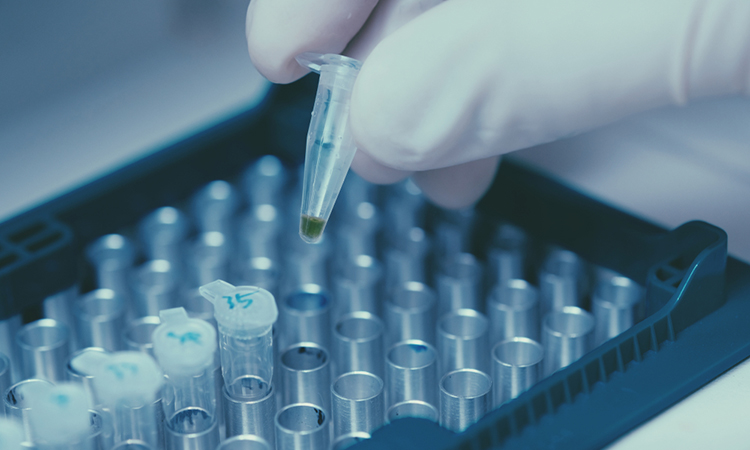RT-ddPCR assay developed to quantify regions of SARS-CoV-2 RNA
Posted: 2 June 2021 | Victoria Rees (Drug Target Review) | No comments yet
Scientists have created a RT-ddPCR assay to analyse both the non-coding and coding RNA regions of SARS-CoV-2.


A group of researchers has developed a new reverse transcription-droplet digital polymerase chain reaction (RT-ddPCR) assay for the simultaneous quantification of multiple non-coding and coding regions of SARS-CoV-2 RNA. The assay was created by scientists at the University of California, San Francisco and San Francisco VA Health Care System, both US.
According to the team, a hallmark of coronavirus transcription is the generation of negative-sense RNA intermediates that serve as the templates for the synthesis of positive-sense genomic RNA (gRNA) and an array of subgenomic mRNAs (sgRNAs) encompassing sequences arising from discontinuous transcription. Existing PCR-based diagnostic assays for SAR-CoV-2 are qualitative or semi-quantitative and do not provide the resolution needed to assess the complex transcription dynamics of SARS-CoV-2 over the course of infection.
To address this, the researchers say they developed and validated the novel panel of sensitive, quantitative RT-ddPCR assays designed to target regions spanning the genome of SARS-CoV-2. The assays target untranslated regions (5′, 3′) as well as different coding regions, including non-structural genes that are only found in full length (genomic) RNA and structural genes that are found in genomic as well as different subgenomic RNAs.
Application of these assays to clinically relevant samples will enhance our understanding of SARS-CoV-2 gene expression and may also inform the development of improved diagnostic tools and therapeutics.
“These assays can serve as novel molecular tools to investigate SARS-CoV-2 infection, replication dynamics and gene expression to better understand the viral dynamics and pathogenesis of SARS-CoV-2 over the course of infection,” the team write in their paper.
Future studies employing these assays could enhance the understanding of SARS-CoV-2 replication and transcription and may also inform the development of improved diagnostic tools and therapeutics, the researchers say.
The findings from the research are published in the Journal of Virological Methods.
Related topics
Assays, Disease Research, Polymerase Chain Reactions (PCRs), RNAs
Related conditions
Covid-19
Related organisations
San Francisco VA Health Care System, University of California San Francisco








